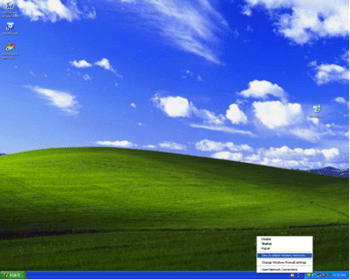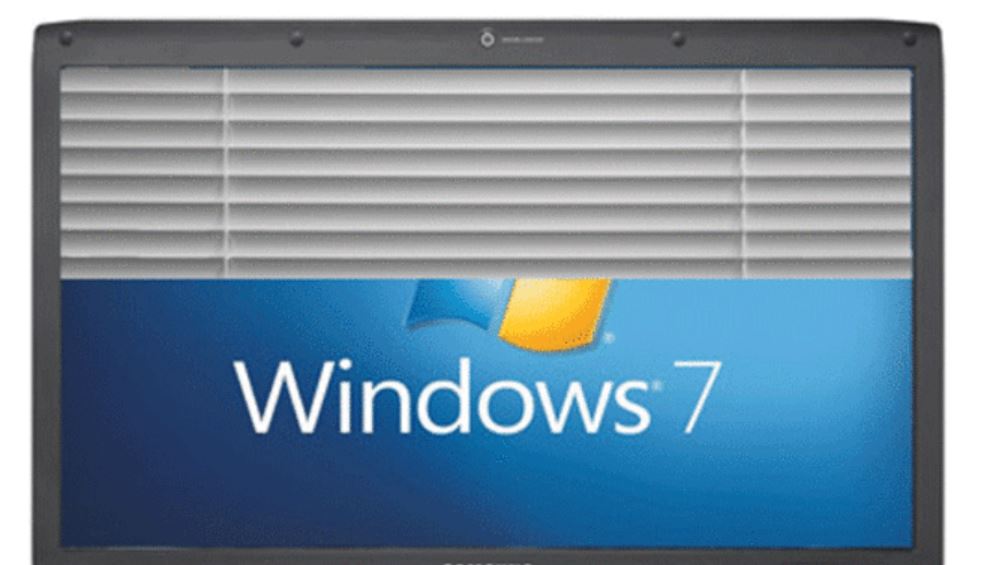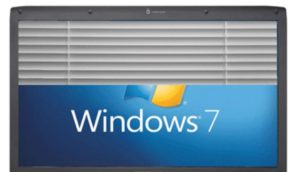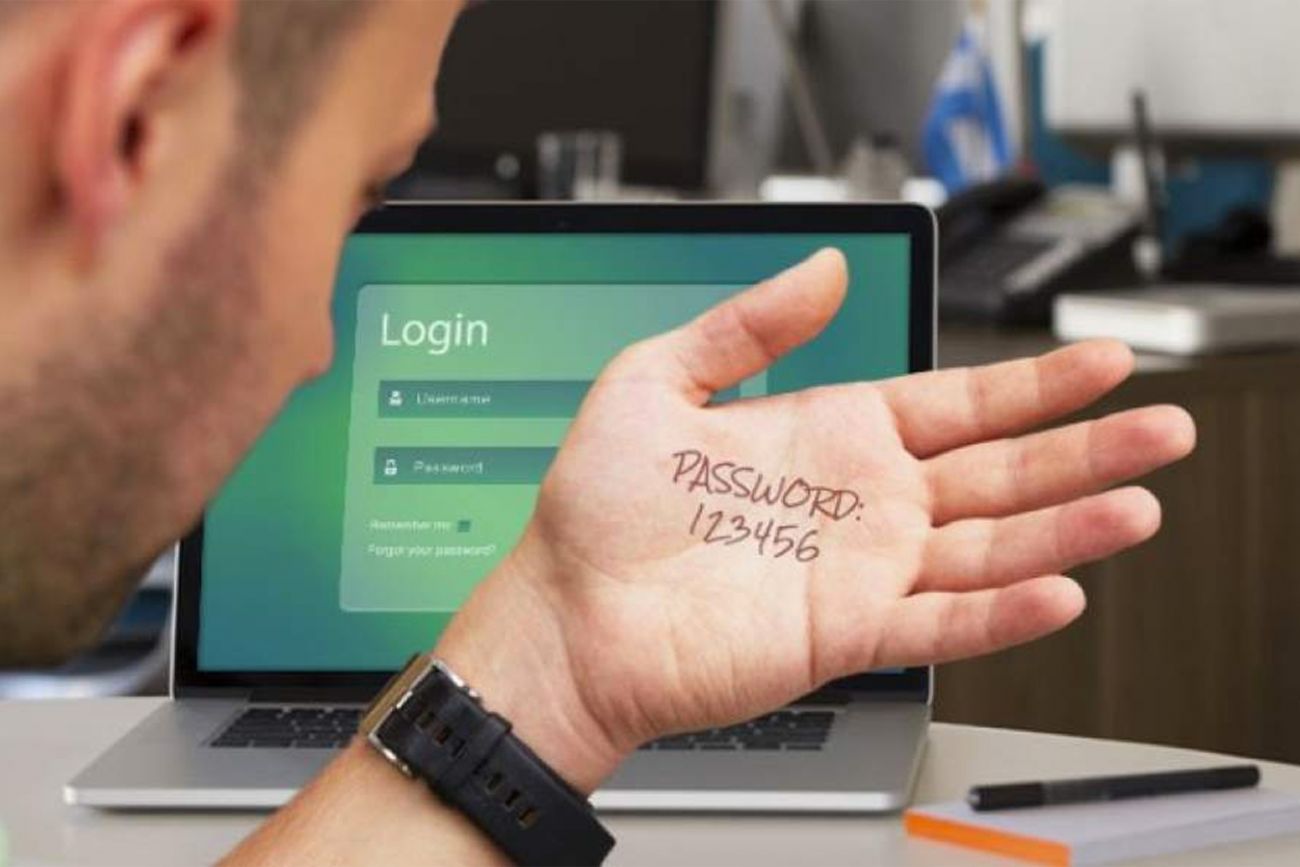29Aug
31May
Windows 7 Upgrade vs Replacement
Microsoft Windows 7 is End of Life on January 14, 2020.
As a result, your organization will need to determine whether upgrading Windows 7 Computers is sufficient or replacement of devices is necessary before this date. End of Life is the phrase used by a vendor to stipulate when the product updates will no longer be released. Once Microsoft declares a product End of Life, they no longer release updates to these systems leaving Windows 7 systems vulnerable to attacks and adding significant risk to your business. The first step in understanding whether to upgrade or replace your Windows 7 systems is the hardware. You must identify devices that will meet the minimum hardware specifications necessary for a positive and efficient level of performance. The minimum hardware recommendations from Microsoft are often enough to run the Operating System. Unfortunately, they are typically not enough to run the systems at desirable and productive levels.The Minimum Requirements for Running Windows 10 on a PC
Processor: 1 gigahertz (GHz) or faster processor or System on a Chip (SoC) RAM (Memory): 1 gigabyte (GB) for 32-bit or 2 GB for 64-bit. (For idea, we never install a system with less than 8 GB of RAM, Microsoft's minimum is 2 GB) Hard Drive: 16 GB for 32-bit OS 32 GB for 64-bit OS (Your typical smartphone today has 16 GB or more of space. Most of them have much more!) Graphics Card: DirectX 9 or later with WDDM 1.0 driver Display: 800 x 600 We put together a checklist to help you choose between upgrading Windows 7 vs. replacing the systems. Request a copy of this checklist to consider when looking to migrate from Windows 7 to Windows 10 successfully. If you would like to a copy of the checklist, contact us using the link below. Enter "Microsoft Windows 7 Upgrade vs Replacement Checklist" in Additional Information section, and we will email you the download. Contact Us If you would like to learn more about this from Microsoft Windows 7 end of life, please visit Microsoft. Would you like to learn more about Microsoft Operating Systems?
03May
It’s World Password Day. Generate a fresh one.
Protect your Digital Life
Password security is something that many people have problems with. Having a secure password for each of your online accounts is important. Because if a scammer gets just one password, they can begin to access your other accounts. That’s why it’s important to have a strong, unique password for your digital life. Next, weak passwords are a problem. But using the same password across multiple websites is an even bigger cybersecurity issue. So change your passwords. And change them frequently. Shield your accounts from hackers with strong, secure passwords. Make them easy to remember and hard to guess. Do not use birthdays, family member names, etc. Most importantly, never ever share your passwords. 81% of security breaches are due to weak or stolen passwords. Change them regularly and make sure you keep them secure.Tips for Strong Password Security:
- Avoid using words from the dictionary. Make up your own words instead.
- Avoid using personal information such as your mother's maiden name or your birthday.
- Make sure it has a minimum of 8 characters and preferably 12 or more.
- Use symbols, both upper and lower case as well as spaces, with two words whenever possible.
- Use a combination of words or a phrase that is easy to associate in your mind and unique to you.
- Finally, use characters other than letters and numbers. These include _, #, &, $, etc. Password security is stronger the harder the password is to remember.
- Add 2-step verification anywhere it is permitted. 2-step verification is an extra security layer requiring code from another location. Yes, it is annoying. But having your accounts hacked or identity stolen will be much worse. So, enable it. There are many forms of 2-step verification, also called multi-factor authentication. Some of the options for the second layer of protection are security questions, fingerprint readers, authentication apps like Google Authenticator or text messages. With today's threats, you need to ensure passwords aren’t the only thing standing between your data and cyber attackers.
- Work with a Managed Service Provider who provides Dark Web Monitoring for your business accounts and personal account for key owners and employees.
- https://www.passwordday.org/
- Use a Password Manager to secure your passwords. The same password manager can be used to help generate secure passwords and integrate into web browsers to help with the authentication process logging into websites.
Protect your devices
The best passwords in the world are of no use if you don’t secure the devices they are used on. If you have a PC, make sure that you have good a multi-layered security system in place including antivirus software and firewall with content management. Some pieces of malware, known as “keyboard loggers”, can record all of your keystrokes and enable hackers to crack your passwords. So keep your information safe and secure by keeping your security up to date by working with a Managed IT Service Provider specializing in Cyber Security like Profulgent Technology. Give us a call today to learn more about our multi-layered approach to cybersecurity.
25Jan
What’s New in Windows 10 Pro?
Windows 10 Pro gives you and your business the freedom to do great things. But Windows 10 Professional isn’t just for cubicle dwellers who have no choice in the matter. While users who own a “professional” PC like the Surface Book 2 will automatically be upgraded to this higher-end version of the OS, smaller businesses and PC enthusiasts may also weigh the benefits of the Pro version vs. Windows 10 Home.
It works across all your devices so you can stay mobile, while allowing you to choose a device that fits your budget. The OS focuses on productivity to match your tireless pace. And it has enterprise-grade security to safeguard your business data. Above all, Windows 10 Pro provides a familiar and productive experience—so your sole focus can be on doing great things. Learn more by clicking the link and found out how Windows 10 Pro makes your devices more productive. Read More...
05May
10 Year Celebration

"There's no luck in business. There's only drive, determination, and more drive." - Sophie Kinsella
26Jun
Windows XP and Office 2003 Are No Longer Supported
You probably heard by now, if not, as of April 2014, Microsoft has shut down support for Microsoft Windows XP and Microsoft Office 2003. Microsoft has declared these products “End of Life”, which means that Microsoft will not produce any more security updates protecting you from threats or criminals trying to get into your system. There's nothing new about software reaching the end of its commercial life. The problem with Microsoft Windows XP and Microsoft Office 2003 is the fact that it is still widely used in many commercial environments. These environments will become hackerheaven. For more details, see HackerHeaven.
Strategic businesses have been working with our IT consultants over the last six months to replace and upgrade their systems. At Profulgent Technology we want to protect our clients in every way possible. If you are still running either of these systems in your environment, the time for change is now! Give us a call to schedule some time with one of our consultants to discuss your upgrade options. 732.242.9345, x. 100
Profulgent Technology - Practical Solutions Business Results!

26Jun
Microsoft to the FBI: Drop Dead
Microsoft has taken some heat for what some people claim is too cozy a relationship with the NSA. But they've recently gotten privacy religion. The company stood up to the FBI. And they refused to turn over data about one of their customers.
This article excerpt, by Preston Gralla, originally appeared here:
http://blogs.computerworld.com/privacy/23947/microsoft-fbi-drop-dead
Microsoft successfully fought off the FBI. It was an attempt get “basic subscriber information” about one of Microsoft’s corporate customers, writes Brad Smith, General Counsel & Executive Vice President, Legal & Corporate Affairs in the the “Microsoft on the Issues” blog.
The Challenge
First, the FBI issued a National Security Letter asking for the info. And as part of the letter, they weren't even allowed to publicly acknowledge that it received request. In fact, it wasn’t even allowed to tell the company about it. So, Microsoft challenged it in court. Because, in the words of Smith:“We concluded that the nondisclosure provision was unlawful...It violated our Constitutional right to free expression. It did so by hindering our practice of notifying enterprise customers when we receive legal orders related to their data.”The FBI backed off, and agreed to call back the letter. Yesterday, documents related to the case were unsealed by a federal court in Seattle. You can read them here.
Future Effect
The case involved a corporate customer using cloud-based Office 365 and cloud data. So, hat’s the future, and likely one of the reasons it fought back against the FBI. And in its petition against the FBI request, Microsoft wrote:“As more users migrate from locally installed software and locally stored data to cloud-based computing platforms, Microsoft increasingly is entrusted to store its customers’ data safely and securely.”Also, they note that its contract requires that it alert them when their data is being requested:
“The Contract provides that Microsoft disclose data to satisfy legal requirements. And to comply with law or respond to lawful requests by by a regulatory or judicial body, as required in a legal proceeding. The Contract also provides that unless prohibited by law, Microsoft must use commercially reasonable efforts. This is to give notice of any such disclosures in advance, or as soon as commercially reasonable after such disclosures.”That’s why Microsoft fought the FBI request. But it has promised its customers it would tell them when a government agency was asking for information about them. And this FBI National Security Letter banned them from doing that. Some might argue that the enterprise only did this to protect its business. But, that’s besides the point. Because for whatever reason, Microsoft stood up to the FBI and won. And that’s a good thing.
11Nov
Tech terms you should know
For most of us, technology is an integral part of our everyday lives. Many of us, however, still are hazy on a number of common technology terms. Fortunately, for those that are confused, we have created a mini glossary of common tech terms you should be familiar with.
Cookies
Cookies are what allow websites to know who you are. If you allow cookies, your web browser will automatically supply your information such as username, password or preferences. They are convenient because they save you from having to reenter your information every time you visit a website.
Cookies are also seen by some as a privacy issue. Since they store your information and track your activity, somebody could easily access your data. You can protect yourself, however, by using cookies sparingly.
URL
A URL, which is short for uniform resource locator, is essentially the web address of a website. It is what you type into the address bar of a browser when you would like to be directed to a web page.
Cloud
Cloud is one of the most used terms in technology these days yet it still has quite a few people scratching their heads. The cloud is made up of web-based services that you can use on any computer without purchasing hardware or installing software. Google Docs and Facebook are among the most common cloud services today.
Flash
Flash is an Adobe Systems-owned platform that allows for great web interactivity. Installing a Flash plug-in on your browser makes it possible for you to view animations, certain displays and videos. Although Flash has been the longtime standard, HTML5 is surfacing as a valid competitor.
Although tech terms can get quite complicated at times, knowing the basics can help you to better understand the technology we’re using every day.
For more tech terms and their meanings, check out this glossary.
30Sep
Windows XP is a ticking time bomb, and it’s set to explode April 8th, 2014.
 It’s that time again, when Microsoft declares the retirement of another operating system, Windows XP, even while many of us are still using it. This does not mean that Windows XP will cease to function on computers in April but it will no longer be officially supported by Microsoft. It is imperative to cease using Windows XP before support is dropped for numerous reasons listed below.
Official Microsoft support for Windows XP means many things including bug fixes, software updates, and security patches, just to name a few. Of these the most relevant to why you should move away from XP are the security patches. These patches close vulnerabilities in the operating system itself that allow malicious attacks or even hijacking of your computer and the data it holds. It’s the same concept as patching up holes in a roof to prevent water from leaking in. Studies show that those who exploit these holes in systems are currently holding onto the security risks they have discovered and plan to wait until after April 8th to use them. This means that starting on April 8th we will see a wave of new virus attacks specifically targeting Windows XP machines. At that point, Microsoft will have dropped support and no attempt will be made to plug these holes.
For this reason alone it should be a priority to eliminate any usage of Windows XP in your office or home, even if it is not a regularly used machine. Just imagine the damage to your company or property that could be done if a burglar broke in and gained full access to your computer systems. That is exactly what any Windows XP machine on your network will potentially become when next April rolls around. The longer an XP workstation remains on your network, the more exploits will be discovered, and the more dangerous it will become. Don’t let this happen to you or your data!
If that is not enough of a reason to motivate you into upgrading your system and security consider this. Security is not the only part of XP that is becoming antiquated, system software is already lagging behind and is only getting worse. Internet Explorer, the built-in Microsoft software many of us use to access the web, is currently in its 10th version. However the latest version running on Windows XP is Internet Explorer 8. So what does this mean to you? It mean that Internet Explorer 8 is the latest version that will ever run on XP. As new languages such as HTML5 are used in websites fewer and fewer pages will load properly in Internet Explorer 8 since it will never receive the appropriate updates. One can simply resort to 3rd party browsers such as Mozilla’s Firefox or Google’s Chrome right now, however that will only last as long as these companies continue supporting XP, which brings me to my last point.
3rd party support for Windows XP. Already many companies who develop software exclude Windows XP as a supported operating system. This is because in the United States only 16% of computers are still running XP. It costs money to ensure compatibility with each operating system, and frankly, to many smaller companies it is neither affordable nor cost effective. This is already going on now, and will get exponentially worse as official support of the operating system is dropped by Microsoft.
So I ask you, are you still running XP on any of your computers? If so, what is the purpose? Is it because the computer has simply not been upgraded, or perhaps because you are running a specialized software that only supports XP?
Whatever the case may be, Profulgent Technology has the answers for you. From simple PC upgrades to virtualization for specific applications, we can bring your business up to speed quickly and ensure your computers are ready when April rolls around.
Read more here (References):
http://www.welivesecurity.com/2013/08/13/cybercriminals-saving-up-wave-of-windows-xp-attacks-for-when-microsoft-stops-support/
https://www.networkworld.com/news/2013/080713-china-has-a-massive-windows-272608.html
It’s that time again, when Microsoft declares the retirement of another operating system, Windows XP, even while many of us are still using it. This does not mean that Windows XP will cease to function on computers in April but it will no longer be officially supported by Microsoft. It is imperative to cease using Windows XP before support is dropped for numerous reasons listed below.
Official Microsoft support for Windows XP means many things including bug fixes, software updates, and security patches, just to name a few. Of these the most relevant to why you should move away from XP are the security patches. These patches close vulnerabilities in the operating system itself that allow malicious attacks or even hijacking of your computer and the data it holds. It’s the same concept as patching up holes in a roof to prevent water from leaking in. Studies show that those who exploit these holes in systems are currently holding onto the security risks they have discovered and plan to wait until after April 8th to use them. This means that starting on April 8th we will see a wave of new virus attacks specifically targeting Windows XP machines. At that point, Microsoft will have dropped support and no attempt will be made to plug these holes.
For this reason alone it should be a priority to eliminate any usage of Windows XP in your office or home, even if it is not a regularly used machine. Just imagine the damage to your company or property that could be done if a burglar broke in and gained full access to your computer systems. That is exactly what any Windows XP machine on your network will potentially become when next April rolls around. The longer an XP workstation remains on your network, the more exploits will be discovered, and the more dangerous it will become. Don’t let this happen to you or your data!
If that is not enough of a reason to motivate you into upgrading your system and security consider this. Security is not the only part of XP that is becoming antiquated, system software is already lagging behind and is only getting worse. Internet Explorer, the built-in Microsoft software many of us use to access the web, is currently in its 10th version. However the latest version running on Windows XP is Internet Explorer 8. So what does this mean to you? It mean that Internet Explorer 8 is the latest version that will ever run on XP. As new languages such as HTML5 are used in websites fewer and fewer pages will load properly in Internet Explorer 8 since it will never receive the appropriate updates. One can simply resort to 3rd party browsers such as Mozilla’s Firefox or Google’s Chrome right now, however that will only last as long as these companies continue supporting XP, which brings me to my last point.
3rd party support for Windows XP. Already many companies who develop software exclude Windows XP as a supported operating system. This is because in the United States only 16% of computers are still running XP. It costs money to ensure compatibility with each operating system, and frankly, to many smaller companies it is neither affordable nor cost effective. This is already going on now, and will get exponentially worse as official support of the operating system is dropped by Microsoft.
So I ask you, are you still running XP on any of your computers? If so, what is the purpose? Is it because the computer has simply not been upgraded, or perhaps because you are running a specialized software that only supports XP?
Whatever the case may be, Profulgent Technology has the answers for you. From simple PC upgrades to virtualization for specific applications, we can bring your business up to speed quickly and ensure your computers are ready when April rolls around.
Read more here (References):
http://www.welivesecurity.com/2013/08/13/cybercriminals-saving-up-wave-of-windows-xp-attacks-for-when-microsoft-stops-support/
https://www.networkworld.com/news/2013/080713-china-has-a-massive-windows-272608.html




